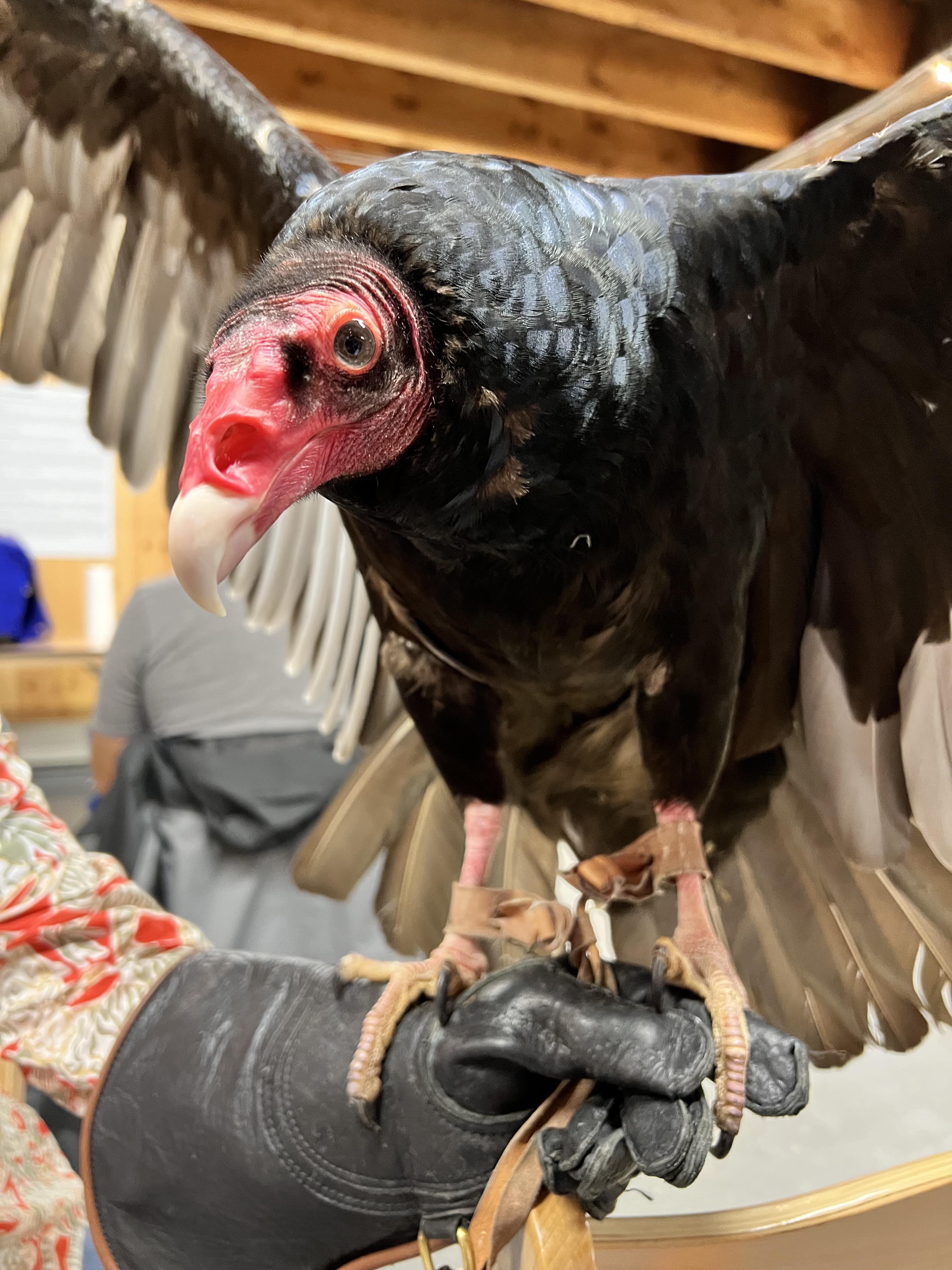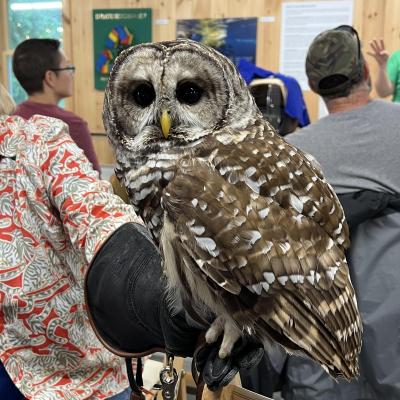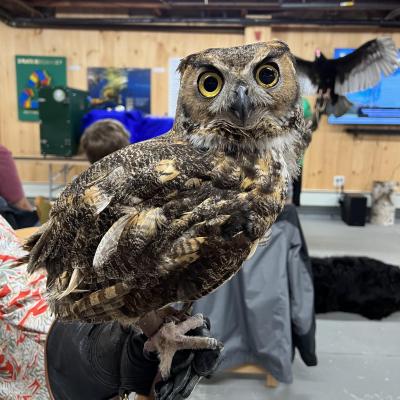Up Close With Owls and Vultures with Tailwinds!
- Tags:
- Wildlife,
- Creek Farm

Greta, the Turkey Vulture, was able to meet attendees up close and in "vulture."
We were so pleased to host community members at Creek Farm on a recent cold and rainy Saturday to experience the wonder of woods and wildlife with our colleagues from Tailwinds: Raptor Education and Conservation.
Tailwinds brought three members of their team of non-releasable raptors to meet attendees and spent time discussing the birds natural and personal histories, the importance of protecting habitat, and ways that we as humans can help our wild neighbors. Many people have not had the opportunity to see these wild animals up close or even at all. Using non-releasable raptors, the educators at Tailwinds believe that environmental and conservation education programming is imperative to creating an environmentally literate community.

Studies have shown that the presentation of ambassador animals in educational programming is a powerful catalyst for learning by enhancing the delivery of cognitive and empathetic messages, which promotes a change in attitude.
This is particularly important for animals like Greta, the turkey vulture, who often get a bad reputation due to misinformation, which in turn can lead to them being unnecessarily killed.
Animal ambassadors are an extremely important resource for educating the public on wildlife conservation issues. They help people develop emotional ties to their native wildlife while fostering an appreciation for the natural world and promoting a sense of stewardship.
For young children and adults alike, the opportunity and excitement of being close to a wild animal can ignite a life-long interest in wildlife conservation. These changes in perception can help prevent more human-wildlife conflict, as well as increase conservation minded voting, action and more.
At the Forest Society, we are proud to have protected over 200,000 acres in New Hampshire, much of which is habitat to the plethora of wildlife that we are so fortunate to call native to New Hampshire. Land conservation involves protecting land from development that jeopardizes its ability to provide important ecosystem services.

Conserving land provides recreation, and protects biodiversity, clean air, and water. Conserving land and the wildlife that inhabits it is essential for the processes that provide us with clean air. Forests in particular act as carbon ‘sinks’- things that absorb more carbon dioxide than they release.
Through photosynthesis, carbon dioxide is taken in by plant life, and oxygen is released. It is important to remember that wild lands are not only those areas untouched by humans, but also areas that are used for things like skiing, hiking, backpacking, kayaking, and many other activities. Their preservation and protection from degradation and development determines if we can use them for these recreational purposes and is an important part of our mission as well.
Our variety of outreach and education programming offered all over the state, allow our community to spark and deepen their understanding and appreciation of the wild world around us, starting in their own back yards. Be sure to check out our upcoming events and we look forward to seeing you!
Sarah Kern is the Creek Farm Education Program Coordinator.
- Another "Vulture Culture" program will take place on August 3 at 5:30 PM at Creek Farm.
